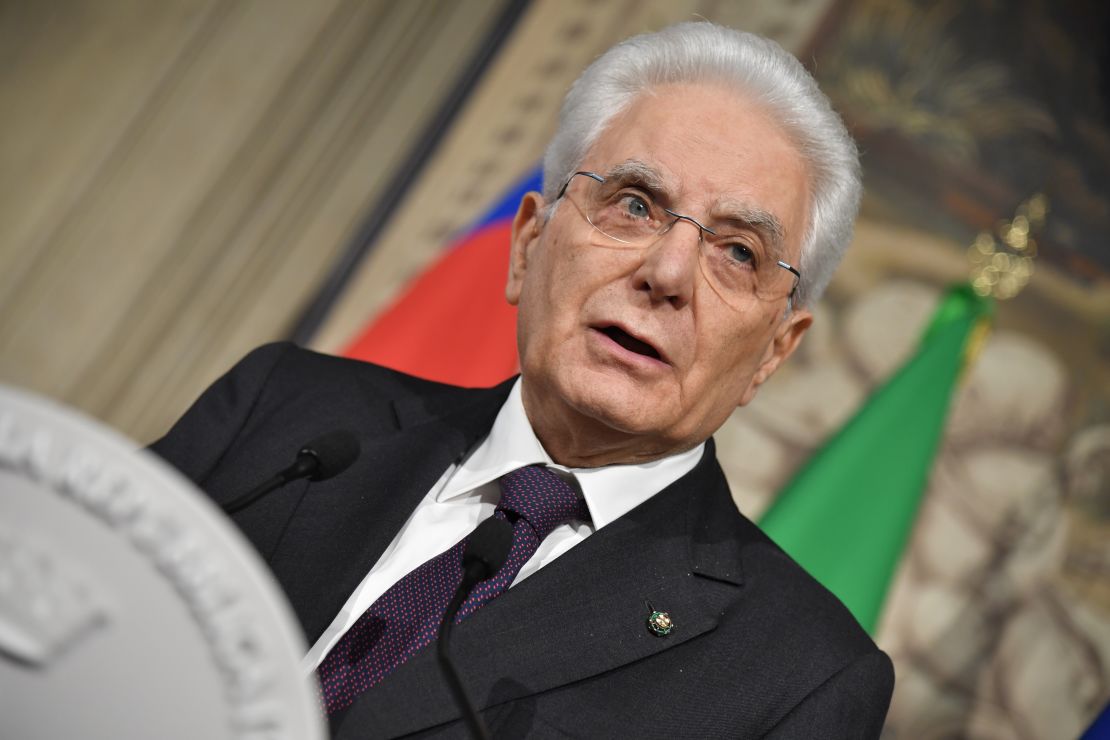Italy’s President is expected Monday to ask a former International Monetary Fund official to be interim prime minister after leading populist parties dropped out of a bid to form a government.
The move comes after the populist coalition’s choice for prime minister, Giuseppe Conte, abandoned his attempt to form a government following President Sergio Mattarella’s refusal to endorse his euroskeptic choice for finance minister.
Mattarella said he had agreed with all of Conte’s other demands, but his choice for finance minister, Paolo Savona, was unacceptable because his appointment would alarm investors and have dangerous consequences for Italy’s outstanding government debt.
Italy has not had a government since it went to the polls in March, the longest such period in the country’s postwar history.
Mattarella has summoned Carlo Cottarelli, former director of fiscal affairs at the IMF, to discuss forming an interim government, as new elections seem increasingly inevitable.
Cottarelli served as director of the Fiscal Affairs Department from 2008 to 2013 and became known as “Mr. Scissors” for making cuts to public spending in Italy.

Impeachment?
Italy’s public debt stood at 2.3 trillion euros at the end of March, according to the nation’s central bank. Italy’s credit rating may be cut by Moody’s over concerns about the new government’s fiscal plans and the risk that some important past measures, such as pension reform, might be reversed.
“I asked for that ministry an authoritative political figure from the coalition parties who was not seen as the supporter of a line that could provoke Italy’s exit from the euro,” Mattarella said in a televised speech.
Reacting to the move, a populist leader, Five Star chief Luigi Di Maio, called for the president’s impeachment.
“(What) if we have elections and we win and then we go to the President’s palace and they say we cannot form a government?” Di Maio told RAI show “Che Tempo Che Fa,” according to Italian news agency ANSA.
“That’s why I say it is necessary to put the President under a state of accusation.”
The leader of the far-right League Party, Matteo Salvini, declined to comment on the possibility of impeachment, according to ANSA, suggesting that he was profoundly annoyed that his attempts to form government had been denied. Di Maio and Salvini formed a coalition after alliances with mainstream parties did not materialize.
At the election, Italian voters eschewed established political parties and flocked to League and the anti-establishment Five Star party, driven in part by anti-immigrant sentiment and overall dissatisfaction with the previous, centrist government.
Five Star won the most votes, followed by the League, but the election did not return a majority to any single party.
The populists ditched some of their most incendiary campaign vows, such as calling for a referendum on whether Italy should abandon the euro or leave the European Union. But they promised a spending and tax-cutting binge that has rattled investors and could contain the seeds of a new European crisis.
A populist government in Rome could make it more difficult for EU leaders such as French President Emmanuel Macron and German Chancellor Angela Merkel to push further political and economic integration of the bloc.
Italy’s prospect of going back to the polls has been raised before since March, with the failure of repeated attempts to form a coalition government.
Mattarella said that a non-aligned administration could be a stopgap solution to the country’s political stalemate.
The League’s Salvini and Five Star Movement’s Di Maio had previously suggested a new poll in early July, but Mattarella had objected, saying that holding an election during the summer would exclude voters who may be vacationing.
